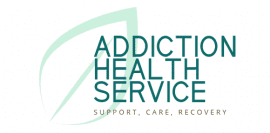



Help for today and beyond
- Excellence in care
- Highly experienced staff
- After Care
- 24/7 support
- Immediate confidential help
- Treatment Solutions
- Immediate admissions process
- Local to you
What is addiction
Addiction is an inability to stop using a substance or engaging in a behaviour even though it is causing psychological and physical harm.
Addiction does not only refer to dependence on substances such as heroin or cocaine. Some habits also involve an inability to stop partaking in activities such as gambling, eating, or working. An addiction is a chronic dysfunction of the brain system that involves reward, motivation, and memory. It’s about how your body craves a substance or behaviour, especially if it causes a compulsive or obsessive pursuit of “reward” and a lack of concern over consequences.
Over time, addictions can seriously interfere with your daily life. People experiencing addiction are also prone to cycles of relapse and remission. It means that they may cycle between intense and mild use. Despite these cycles, substance abuse will typically worsen over time. It can lead to permanent health complications and life consequences like bankruptcy.
Symptoms of Substance Abuse
There are always visible signs of substance abuse these can be both physical and psychological, as well as significant behaviour changes. It can be vital to know the signs and symptoms of drug addiction. Alcohol or drug addiction can change anything from the way a person looks, acts and feels.
Physical Symptoms and Signs of Drug Addiction
Some physical signs of drug use are:
- Frequent runny nose (common with cocaine addiction)
- Tremors or seizures
- Loss of physical coordination
- Extreme lethargy
- Chemical odour on breath or clothes
- Pinpoint pupils (common with opioid and heroin addiction)
- Bloodshot or watery eyes
- Changes in weight
- Changes in appetite and eating habits
- Clenching of the jaw
- Irregular sleeping patterns or difficulty falling asleep
- Marks on skin
- Poor personal hygiene
Psychological Signs and Symptoms of Substance Abuse
When someone misuses drugs, they may experience changes in their feelings, which will also affect their behaviour. Some common psychological signs include:
- Depression and anxiety: You may notice signs of depression and anxiety where they never existed before, including your loved one losing interest in things they used to love, sleeping too little or too much or gaining or losing dramatic amounts of weight.
- Low self-esteem: Individuals with drug addictions may demonstrate a clear lack of confidence in their abilities, intelligence, looks or other aspects of life.
- Poor motivation: You may notice that people demonstrating substance misuse symptoms set extravagant objectives, but have little to no motivation to achieve them.
- Irritability and mood swings: Another symptom of drug use can manifest as sudden agitation and unpredictable temperament.
Behaviour Changes in Drug Addicts
Dishonesty
Most forms of substance abuse are illegal so the majority of people who are addicted to illegal drugs or who misuse prescription drugs will hide it. As a result, they are often more secretive about their lives and may lie to cover up their behaviour.
Aggression and anger
According to a study from the National Institute on Drug Abuse’s Intramural Research Program, people who are addicted may be more likely to throw sudden fits of rage or act more aggressively.
Manipulation
Those suffering from substance abuse are likely to go to major lengths to get their drug of choice. This often includes manipulating those around them. If your loved one is addicted to a drug, they have intense cravings that work to justify their manipulative behaviours. This is likely to lead them to become overrun with feelings of desperation and guilt as a result.
Risk-taking
Things like driving under the influence, having unprotected sex, or stealing money from friends and family members are not uncommon when addiction is a factor. Studies show chronic substance abuse is linked to changes in the prefrontal cortex of the brain, which affects a person’s planning, attention, emotional regulation, and self-control.
Forgetfulness
Substance abuse often causes memory problems because drugs interfere with the brain’s cognitive functions and disrupt the way memories are processed. This often comes across as forgetfulness to friends and family members who may be unaware of a person’s drug abuse.
Withdrawal From Addiction
Drug and alcohol withdrawal symptoms can range from mild to severe, depending on the substance being used. They also depend on how long and how heavily you’ve been using. The withdrawal symptoms of drug abuse and alcohol addiction can be difficult to deal with and may lead people back to using their substance of choice to alleviate the discomfort.
You can experience withdrawal symptoms for various types of substances, from marijuana and alcohol to stimulants such as cocaine, sedatives such as valium/diazepam and opioids like heroin. Significantly severe signs of withdrawal are associated with substances such as alcohol, benzodiazepines and opioids. Stimulants and marijuana are other drugs that are associated with potentially uncomfortable withdrawal syndromes, though symptoms are often relatively less pronounced than those experienced during opioid, alcohol and benzodiazepine withdrawal.
Get Help With Substance Withdrawal
If withdrawal is interfering with your ability to function or if you feel you can’t cope, it’s time to get help. See your GP or talk with a rehabilitation centre as soon as possible. They can suggest ways to help calm your nervous system and challenge negative thoughts. You will not be judged or shamed; these professionals help people like you every day and have access to an arsenal of ways to help. Talking with someone who understands and validates your feelings can help ease your turmoil.
